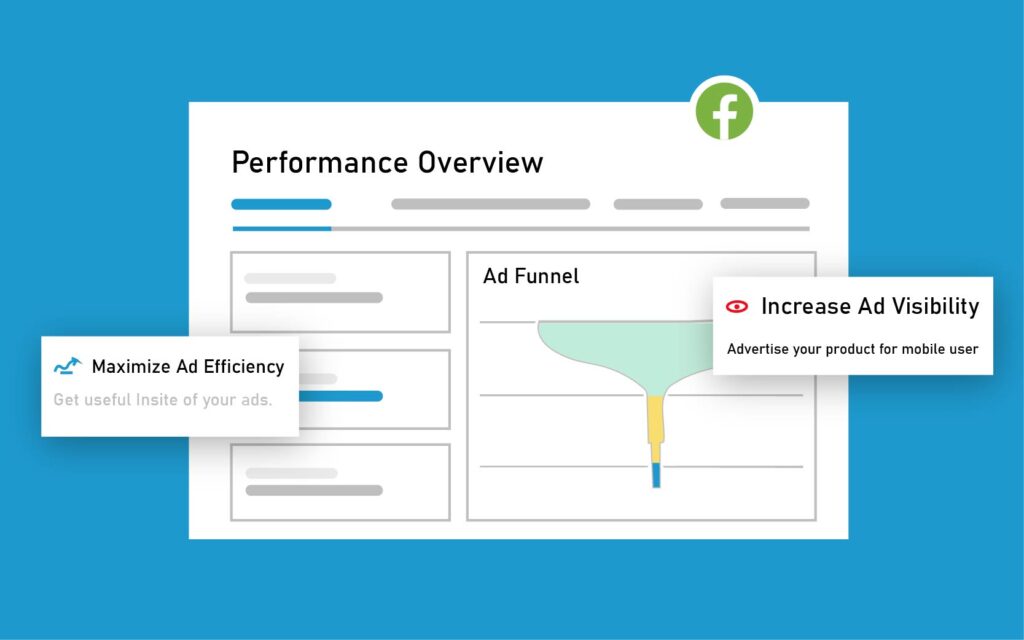
LinkedIn Client Hunting Course in Mohakhali
LinkedIn is more than just a platform for networking; it’s a powerful tool for finding

If you want my team to manage your good marketing for you, click here
Facebook has transformed the way businesses engage with customers, and mastering its marketing tools is imperative for success. In this guide, he will explore the comprehensive Facebook Marketing Course in Mirpur, designed for individuals looking to enhance their digital marketing skills. She will detail the course content, covering strategies for audience targeting, content creation, and ad management. They will also highlight the expertise of the instructors and the practical applications that participants can implement immediately. This course is an invaluable opportunity for anyone eager to leverage Facebook for business growth.
Before venturing into Facebook marketing strategies, it is crucial to understand the different types available. Each type caters to varied business needs and target audiences.
| Type | Description |
| Organic Marketing | Utilizes unpaid methods to drive engagement. |
| Paid Advertising | Involves spending money on advertisements to reach a broader audience. |
| Content Marketing | Focuses on creating valuable content to attract users. |
| Influencer Marketing | Leverages influencers to promote products or services. |
| Event Promotion | Utilizes Facebook events to engage audiences. |
Perceiving these types enables businesses to tailor their marketing strategies effectively, maximizing their reach and engagement.
On Facebook, organic marketing involves using unpaid methods to engage users, such as posting relevant content, responding to comments, and participating in community discussions. This approach fosters authentic relationships with the audience, builds brand loyalty, and encourages word-of-mouth referrals without investing in ads.
Now, paid advertising on Facebook is a powerful strategy for businesses seeking to widen their reach and target specific demographics with precision. This method allows marketers to leverage advanced targeting options, such as interests, behaviors, and location.
The flexibility of paid advertising is a significant advantage, as it can drive targeted traffic to a business’s page or website. By creating compelling ad copy and eye-catching visuals, marketers can generate leads and conversions effectively. Various types of ads, like carousel, video, and slideshow formats, can be utilized for different marketing objectives, ensuring that businesses maximize their promotional efforts on the platform.

If businesses want to maximize their reach on Facebook, they must follow a structured approach to marketing. The table below summarizes vital steps in this journey:
| Step | Description |
|---|---|
| 1. Setting Up a Business Page | Creating a dedicated space for brand representation. |
| 2. Creating Engaging Content | Producing posts that captivate the audience. |
| 3. Running Targeted Ads | Utilizing Facebook’s advertising tools for specific segments. |
Guide the businesses on how to establish their Facebook Business Page, ensuring it reflects their brand identity and values. This involves choosing the right category, completing all relevant details, and using high-quality visuals to capture attention.
One effective way to foster engagement on a Facebook page is to create content that resonates with their target audience. This includes using eye-catching images, intriguing headlines, and informative posts that encourage interactions and shares.
It is vital that businesses focus on variety when crafting their content strategy. They can incorporate videos, live streams, and polls to diversify their engagement tactics. Additionally, showcasing user-generated content can help build community and trust, making followers feel valued and more likely to participate actively.
Even the most visually appealing ads won’t succeed without a solid strategy. To excel in Facebook marketing, she must consider several key factors, including:
Knowing these factors can significantly enhance their marketing efforts, leading to better engagement and conversion rates.
Targeting the right audience is vital for effective Facebook marketing. By understanding demographic data and user behavior, she can tailor her ads to reach those who are most likely to engage with her products or services. Additionally, leveraging Facebook’s audience insights allows for the segmentation of users based on interests, location, and more, ensuring the marketing message resonates with the intended recipients.
Now, developing a clear budget and understanding Return on Investment (ROI) is imperative for successful campaigns. Strategic allocation of funds helps in maximizing the reach and effectiveness of ads on Facebook. They should track spending and compare it to the results achieved to ascertain the effectiveness of their marketing efforts.
Marketing expenses on Facebook should align with objectives outlined at the beginning of campaigns. By monitoring the correlation between ad expenditures and returns, they can optimize their budget, ensuring funds are allocated toward high-performing ads. This approach not only enhances financial accountability but also enables adjustments for improved future campaigns.
Unlike traditional advertising methods, Facebook campaigns can be fine-tuned for maximum effectiveness. She should implement the following tips:
Knowing these tips can significantly increase the return on investment for advertising on Facebook.
Facebook is all about engaging content, so she should prioritize quality over quantity when posting. They must identify the best times to post based on audience insights, ensuring that their content reaches the maximum number of viewers. Additionally, using a variety of content formats, such as images, videos, and stories, will keep the audience engaged and coming back for more.
You need to regularly assess how well Facebook campaigns are performing to make informed adjustments. Analyzing metrics such as engagement rates, click-through rates, and conversion rates can help identify what resonates with the audience and what needs improvement.
A combination of quantitative data and qualitative feedback will provide a comprehensive view of campaign performance. She should leverage tools like Facebook Insights and Ads Manager to track metrics closely, allowing her to see trends over time. By understanding these performance metrics, they can make data-driven decisions that enhance campaign effectiveness and ensure long-term success in Facebook marketing.
Many marketers and businesses are exploring the advantages and disadvantages of Facebook marketing for effective online outreach. The following table summarizes these pros and cons:
| Pros | Cons |
|---|---|
| Widespread user base | High competition |
| Advanced targeting options | Ad costs can escalate |
| Variety of ad formats | Algorithm changes affect visibility |
| Engagement features | Time-consuming management |
| Analytics and insights | Need for continuous content creation |
Pros of Facebook marketing include its extensive user base, which allows businesses to reach a diverse audience effectively. The platform’s advanced targeting features enable marketers to direct their messages to specific demographics, increasing the likelihood of engagement. Furthermore, the variety of ad formats available allows for creative promotion tailored to different marketing objectives.
Even though Facebook marketing offers numerous benefits, it also presents challenges and limitations. The competition is intense, with many businesses vying for attention within users’ feeds. This saturation can make it difficult for new or small brands to establish a presence.
This challenge is compounded by the increasing costs associated with advertising, as businesses must compete with others for the same target audience. Additionally, frequent algorithm changes can result in fluctuating visibility for posts, making it vital for marketers to stay informed. Lastly, the need for consistent engagement can require significant time and effort, particularly in content creation and management, which may strain smaller teams and resources.
Drawing together the insights gained from the Facebook Marketing Course in Mirpur, participants will find themselves better equipped to harness the power of social media for business growth. They will learn effective strategies to engage audiences, optimize campaigns, and analyze performance metrics. He, she, and they will now possess the tools to elevate their marketing efforts and drive success in a competitive digital landscape. Overall, this course serves as a comprehensive gateway for aspiring marketers seeking to thrive in the evolving world of Facebook marketing.
It is really a win-win situation 😲 for you to join the “Digital Wit Academy” Facebook group and gain the most updated information about different digital marketing strategies.

Kamrul Hassan is the founder and CEO of Digital Wit Academy. As you know, Digital Wit Academy is a fast-growing Bangla e-learning platform that provides quality knowledge and support to students. Kamrul Hassan is a government-certified Professional Digital Marketing Expert and a trainer/mentor in the Youth and sports ministry projects of the BD government. His Team Digital Wit Academy consists of well-educated and highly motivated core team members who are very friendly. They believe in quality support to make the students’ careers more successful. Support is the best part of the Digital Wit Academy courses.

Stop wasting money and unlock the hidden potential of your advertising skills with Digital Wit Academy.

LinkedIn is more than just a platform for networking; it’s a powerful tool for finding

Most professionals are aware of LinkedIn’s potential as a powerful tool for networking and client

Course participants will discover the art of leveraging LinkedIn client hunting to attract effectively. In

With the rise of digital networking, mastering LinkedIn for client acquisition has never been more

There’s an exciting opportunity for professionals seeking to enhance their networking skills through my LinkedIn
Hey, I’m Kamrul Hassan, the mastermind of Digital Wit. I’m confident to grow your brand. My only question is, will you grab the opportunity?